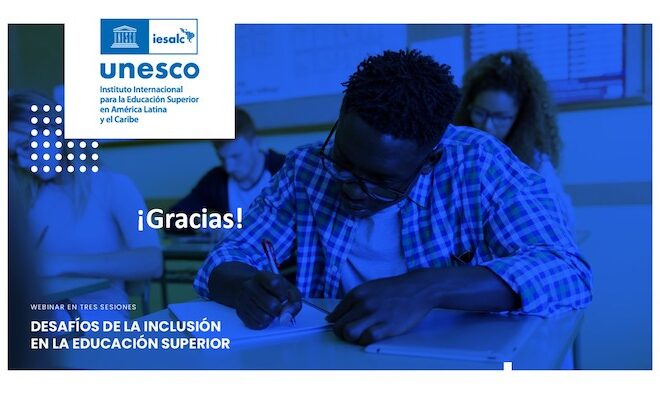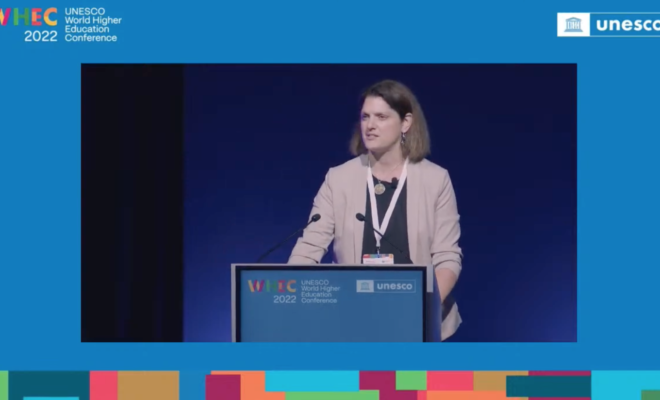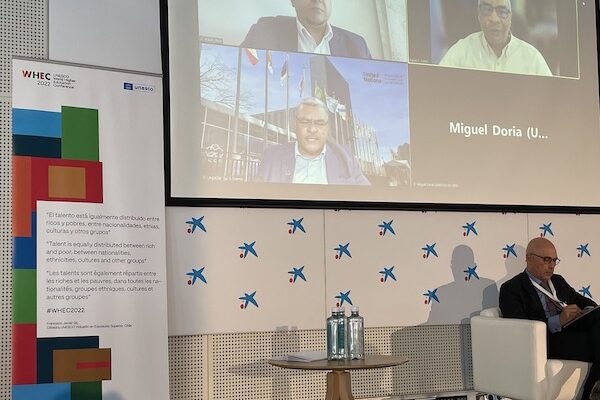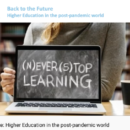Towards #WHEC2022. Webinar 5: Financing higher education
One of the main axes of UNESCO World Higher Education Conference #WHEC2022, to be held in Barcelona (Spain) next May, is the financing of higher education. In order to transfer the approaches of Latin America and the Caribbean, IESALC is carrying out a specific Regional Consultation, through a variety of events in order to bring together as many voices from different sectors as possible.
On February 2, 2022, experts in the area participated in this webinar – organized jointly with the IDB, OEI, Santander Universities and SEGIB – to analyze the present and perspectives of higher education financing.
Moderator: Victoria Galán-Muros, Chief of Research and Analysis – UNESCO IESALC
Some ideas from the participants

Francesc Pedró, Director of UNESCO IESALC
From UNESCO’s perspective, we understand that higher education is a public and social good, where the State has a leading role in guaranteeing what we consider a universal right that is committed to lifelong education.
There are many expectations that need to be more realistic in a pandemic situation in the region. Public spending on education is going to have to compete with other social spending priorities, even within the education sector itself.

Ana Fanelli, senior researcher in the area of higher education at the Center for the Study of State and Society, CEDES – CONICET of Argentina.
Since the 1996, 2008, and 2018 Regional Conferences on Higher Education, the issue of financing has been present as an instrument for achieving the objectives, that has an impact on institutional management and which includes the financing of higher education to achieve the Sustainable Development Goals (SDG).
Fiscal accounts in Latin America and the Caribbean have significant deficits before the beginning of the pandemic, even almost doubling in many cases between 2019 and 2020.
GDP per capita today is lower than it was 10 years ago, and public spending on higher education in the decade is based on GDP, but private investment also contributes to education. More than half of the enrollment in the region is in private education, even doubling in some countries such as Chile.
Free education is not enough to guarantee universal access and student graduation. A more comprehensive approach to financing mechanisms is required in order to eliminate barriers of social inequality in access and success.
Mechanisms should be established to diversify funds through the sale of services, consultancies, technology transfers and donations, as well as instruments to optimize public investment in higher education institutions.
Among the challenges are increasing investment per student, achieving universal access and graduation with quality and relevance in education, designing a battery of financing instruments with an emphasis on policy coordination, and analyzing how these funds have been used.
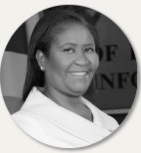
Viviene Johnson, Senior Director, Planning and Development, Ministry of Education, Youth and Information, Government of Jamaica
There are initiatives to reduce dependence on financing from governments. One of them is that the government could motivate parents and different members of society to establish, from the beginning, saving for their children’s higher education as a life plan.
The government should promote employment opportunities for students so that they can pay back their HE financing. Funds can be established to finance scholarships that are intended to promote specific skills or labor markets and according to the country’s priorities.
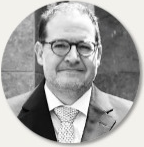
Jesús López Macedo, General Academic Director of the National Association of Universities and Institutions of Higher Education (ANUIES-MX)
The reduction of investment in higher education compared to other priorities is worrisome. It is necessary to observe the highest practices of transparency and accountability of the resources received.
It is possible to seek synergies and form consortiums to access national and international forums, and undertake innovative actions, such as the shared use of laboratories.

Gregory Elacqua, senior economist in the education division of the social sector of the Inter-American Development Bank
Even working with deficit budgets, increased by the pandemic, you have to focus on smart spending that is efficient and transparent. There are three types of programs: scholarships, loans and support.
Performance-based scholarships in LA should take into account the students’ context. Not everyone has the same level of access to credit to pursue a higher education degree, so it must be expanded with reasonable and associated interest rates. HEIs should invest in programs for the most vulnerable students, who are more likely to drop out.

Jorge Téllez, executive director of the Pan-American Association of Educational Credit Institutions (APICE)
Priority lines should be opened, for example, to support universities and not only students. Educational credits should prioritize teacher training. Offer support for lines of development of certain innovations that are useful, that have enormous prospects and high demand.
There is a disenchantment in current students about traditional training; HEIs need to leave paradigms behind and adapt to current requirements, but in order to do this, they need resources that sometimes they do not have.
Presentation
Financiamiento de la educación superior en América Latina y el Caribe, (Financing Higher Education in Latin America and the Caribbean), Ana Fanelli, Center for the Study of State and Society (CEDES-CONICET)
Learn more: Latin America and the Caribbean Consultation addressed main themes of the #WHEC2022

RELATED ITEMS

